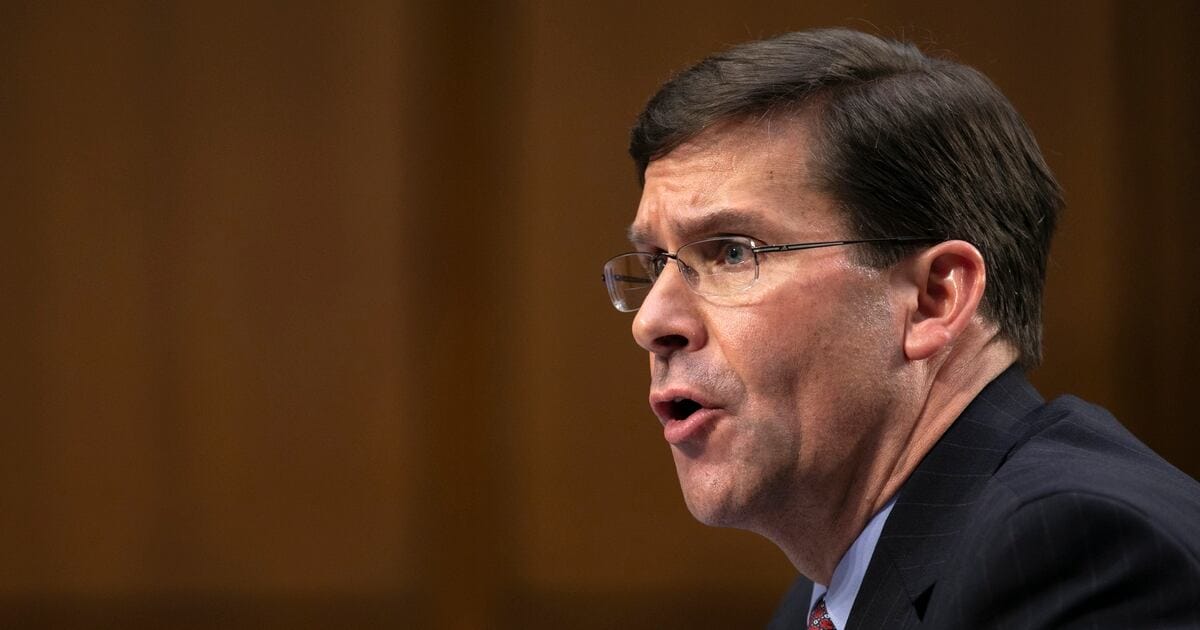A series of meetings between leading technology executives and high-ranking officials within the Department of Defense (DoD) have taken place recently, sparking both interest and speculation. These meetings, characterized by their discreet nature, involved prominent figures from various tech sectors, including software development, artificial intelligence, and cybersecurity. While the details of the discussions remain largely confidential, both the DoD and the tech companies have confirmed the exchanges focused on potential collaboration and the sharing of expertise.
The backdrop for these meetings is the growing recognition that the pace of technological advancement is rapidly transforming the landscape of both civilian and military operations. The DoD, historically a major driver of technological innovation, acknowledges the crucial role the private sector now plays in developing cutting-edge technologies. Simultaneously, tech companies recognize the importance of addressing national security concerns and the potential for their innovations to serve a broader public good.
The meetings are understood to have covered a range of topics. One significant area of focus is the application of artificial intelligence (AI) to defense and security purposes. This includes exploring AI’s potential in areas such as threat detection, data analysis, and autonomous systems. The ethical considerations surrounding the use of AI in these contexts were also reportedly a topic of considerable discussion.
Another key area of discussion centered on cybersecurity. In an increasingly interconnected world, protecting critical infrastructure and sensitive data from cyber threats is a paramount concern for the DoD. The experience and expertise of technology companies in identifying and mitigating these risks is highly valued by the department. The discussions included the possibility of joint projects to enhance cyber resilience and develop advanced threat detection capabilities.
Furthermore, there was dialogue regarding the potential of emerging technologies like quantum computing, advanced materials, and biotechnology for military applications. While these technologies are still in the early stages of development, they have the potential to radically change defense capabilities and strategies in the future. The DoD is keen to stay abreast of these advancements and explore potential partnerships that can ensure the United States remains at the forefront of technological innovation.
The meetings are not seen as an isolated event, but rather as part of a continuing effort by the DoD to engage with the private sector. In recent years, there has been a growing recognition that the traditional model of defense procurement and innovation needs to evolve to keep pace with the speed of technological change. These discussions suggest a move towards greater collaboration and a more fluid exchange of knowledge between the government and the tech industry.
It’s important to note that these meetings were conducted with a clear understanding of the need for transparency and accountability. The DoD is aware of the public scrutiny surrounding its engagements with the private sector and is committed to ensuring that any collaboration is conducted ethically and in accordance with applicable laws and regulations. The details of any potential agreements will be made public, in accordance with relevant legislation and policy.
While the full implications of these discussions are yet to be revealed, the meetings represent a significant step towards closer collaboration between the technology industry and the Department of Defense. They highlight the increasing importance of technology in national security and the growing interdependence between the public and private sectors in driving innovation and addressing evolving global challenges. Future discussions and formal agreements resulting from this initial series of meetings are expected to further define the scope and depth of this cooperation. The outcomes of this collaboration will likely shape the trajectory of technological development in the years ahead, impacting both defense strategies and broader societal advancements. This strategic engagement also reflects the changing nature of the defense landscape where the cutting-edge advancements often originate from commercial sectors before finding military application.
The potential for synergy between the expertise of private tech companies and the mission of the DoD is significant, but challenges remain. Issues such as intellectual property rights, data privacy, and the ethical use of technology will need to be carefully addressed in any collaborative projects. The ongoing dialogue between these entities will therefore be critical to the success of these collaborations, making it a point that the discussions continue and that information is passed to the public, to ensure a transparent system is followed. The meetings themselves have brought about the idea of constant conversation and feedback to all stakeholders, both in public and private.
The precise nature of the future collaborative efforts is still under development. The initial meetings were meant to be exploratory and to identify areas of common interest and potential partnership. Further engagements will likely lead to more formalized agreements and specific projects. The DoD is in a unique position to utilize and fund some of the private sector’s most innovative technologies, while the private sector will likely benefit from the funding and scope that the Department of Defense is able to offer. It is a complex relationship that requires a careful consideration of all elements and potential results that it will bring about.
There have been concerns about the potential for a conflict of interest when such private and public entities collaborate. It is for that reason that all of these discussions are kept very close to scrutiny, and any agreements are likely to be made public, to maintain the public trust and uphold the ideals of the American values. The ongoing transparency of the process is key to ensure public trust. There was an understanding from both parties of the necessity to uphold ethical and legal standards of business during the engagement process. This level of scrutiny will likely continue throughout any and all partnerships that derive from these initial meetings. This will likely include oversight from independent organizations to maintain the highest standards of conduct.
The meetings also highlighted the importance of attracting and retaining talent in both the tech industry and the defense sector. The competition for skilled professionals in fields such as AI, cybersecurity, and software development is intense. Collaborative efforts between the private sector and the DoD may provide opportunities for joint training programs and knowledge sharing. This will also allow for a better understanding of the work ethics of different public and private entities, allowing for a more cohesive working environment. This will also benefit the American populace, providing a stronger and more reliable defense, and better tech advancements within the public sector.
The meetings brought forth an understanding of the potential for a closer working relationship between the Department of Defense and the technology sector. While the details are still in development, and the extent of the collaboration isn’t fully understood, it presents the potential for significant advancements in many fields. The importance of maintaining transparency and adhering to ethical and legal guidelines was noted by both sides, in an effort to maintain the public trust in both the DoD and the private technology sectors. It is an ongoing process of engagement, that will likely shape the course of public and private interactions in the future.
The initial discussions also emphasized the need for responsible innovation. The speed at which technology is advancing necessitates careful consideration of its potential impacts on society. The DoD and tech companies are aware that they are on the forefront of this innovation and have to act with care and foresight in their planning, to ensure a beneficial outcome for the American people. The focus on responsible innovation underscores the importance of an ethical approach to technology development that can benefit both the nation and its citizens.
In conclusion, the recent meetings between tech executives and DoD officials underscore the growing importance of collaboration between the public and private sectors. These discussions have the potential to redefine the future of technological advancements in defense and national security. While it is still early to predict the full extent of this collaboration, the engagement provides a pathway for greater innovation and a more unified approach to addressing the many challenges faced in the modern age. The process will continue, and more details will likely become available over the course of the year, giving a clearer picture of the future. The most significant factor, at least for the foreseeable future, will be the maintenance of a transparent process for the collaborations.



